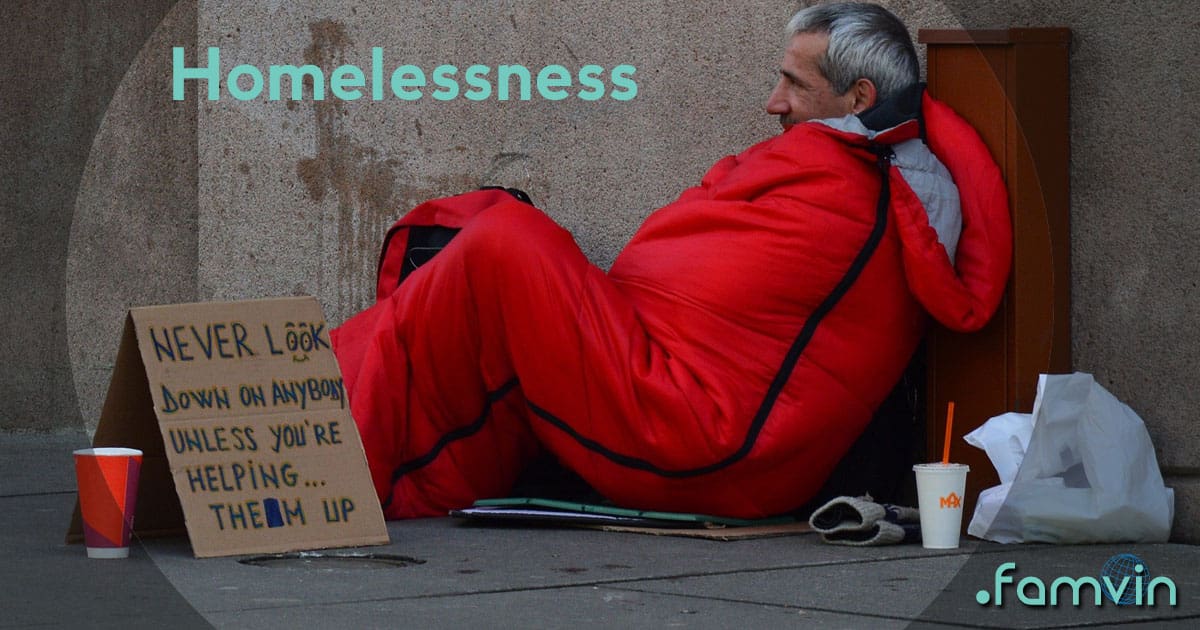A Shelter or a Way Out Of Homelessness?
St Vincent believed that if you gave a hungry person a sandwich you fed that person for a day. But that did not solve the underlying problem. He also looked for ways to teach the person how to fish. Then they could feed themselves.
I was reminded of his philosophy when I read Robert Davis’ reflection in Invisible People on the difference between an “intervention approach” to homelessness compared to a “shelter approach.”
Highlights
He provides some background on the significance of a problem that will only get worse.
Several cities are critically looking at their homeless intervention services as experts expect homelessness to explode across the country once the eviction moratorium officially ends.
According to estimates by the Aspen Institute, between 30 and 40 million people are at risk of experiencing homelessness once the moratorium expires. In a study of local eviction policies, the organization said areas showing the lowest increase in homelessness often had robust intervention services.
Intervention services
Examples of intervention services include community-based rapid re-housing programs, project-based transitional housing, subsidy-only programs such as stimulus payments or guaranteed income, and usual care like treatments and services.
Down south in Texas, Austin’s city council created a new program known as “Southbridge” that will provide bridge shelter services to people experiencing homelessness who are displaced from encampments.
The program will run out of a Protective Lodging facility (ProLodge), a hotel on the outskirts of town. It is part of the city’s Housing-Focused Encampment Assistance Link (HEAL) initiative. The hotel is intended to open at the end of May.
Similarly, local leaders in Anaheim, California, replaced three police officers with homeless outreach workers in Orange County. The six-month pilot program is a first in county history and is funded through federal COVID-19 relief funds.
Known as the Community Care Response Team (CCRT), the group aims to prevent COVID-19 from spreading among people experiencing homelessness by directly providing medical and social services to people living on the streets. It is also responsible for guiding people who come in contact with CCRT members into some form of housing.
The existing police outreach team has helped over 400 people find housing since 2013. In comparison, the newly formed CCRT team helped 254 people in their first three months.
Shelter Approach
While many other cities are taking similar approaches to solving homelessness, others are moving in the opposite direction. Instead of focusing on creating meaningful interventions, these cities prioritize programs that do not provide a dignified means of escaping homelessness.
The nonprofit says their ideal intervention ends with transporting a person experiencing homelessness to a treatment center or shelter.
Boulder, Colorado’s city council approved $3 million in funds to create a special police force designed to break up homeless encampments. The removal team also includes urban park rangers and “downtown ambassadors,” representatives paid for by the local business community.
The program is in response to an escalating number of public complaints about homeless encampments. In 2021, the city has received over 300 complaints so far. At the same time, city officials have identified at least 21 encampments and over 120 unsheltered individuals living in the area.
During the meeting, Councilmember Adam Swetlik said officials could have better spent the money on housing solutions rather than continued displacement.
“We’re spending $1.5 million on additional cops,” Swetlik said. “That’s 25,000 nights of hotel stays.”
Treating people with dignity is the first step to ending homelessness. Contact your legislators and tell them you support affordable housing and intervention services in the fight to end homelessness.
[Robert Davis is a freelance journalist based in Colorado who covers housing, police, and local government.]
Please note: I am grateful to you who follow this weekly reflection. However, I am transitioning to a new ministry at Niagara University in the Niagara Falls area. I anticipate writing just once a month and perhaps on other occasions if warranted.







Thank you, Father Carroll, for these articles. I have read all of them and found them very interesting and informative. Blessings on you in your new ministry.
Appreciate your updating info on how we as a nation are responding to the challenge….
GOOD LUCK AT NU !!! REGARDS TO CMs AT THE FALLS!!! GOD BLESS !!! JTP
BLESSINGS !!!